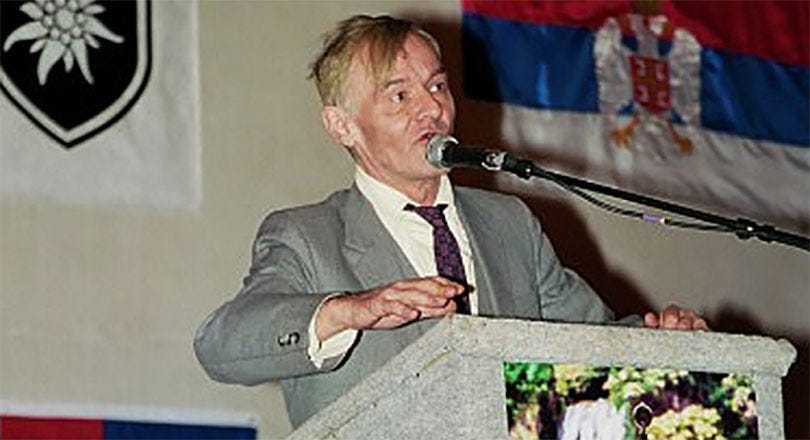What Is a Community?
by Guillaume Faye
Guillaume Faye explores the idea of community as an organic alternative to the modern social order.
A community is a human group whose internal bonds — of a global and organic nature — are structured by the feeling of a shared belonging, a common heritage, and a collective will to live, in contrast to the contractual, individual, and self-interested ties that govern “society.”
Ethologically, the community is the most natural form of human association, and also the one that most fully allows for the expression of a culture. Because it is homogeneous on the ethnocultural level, the community precedes its own forms of organization — unlike society; yet it never exists in absolute purity and therefore always includes elements of social structure and contractual relations. One should thus speak of a community model (and not of a utopia).
This model, which can extend from the nation (community of the people) to the family, encompassing the brotherhood (community of faith), the army (community of combat), and the enterprise (community of work), stands in radical opposition to the societal models of the dominant ideologies, marked by unilateral individualism and egalitarianism — the hallmarks of social contract doctrines.
In the community model, human relations are multidimensional and ordered according to a holistic structure: the community is at once affective, rational, hierarchical, and multifunctional; it carries both a history and a destiny and extends beyond the present. Its being transcends individual lives, granting them meaning. The ideals of communal service and duty stand at the core of our ethical values. This model — long attractive to the less dogmatic currents of the Left — offers a fitting response to the growing nihilism of market society.
(Translated from the French here)


I like when a wise man suddenly decided that he has discovered the hot water! The world has been living for thousands of years organised on this community model! Anyhow, it's nice to rediscover something based on common sense in our 21st crazy century!
Good short article, embrace community and social capital